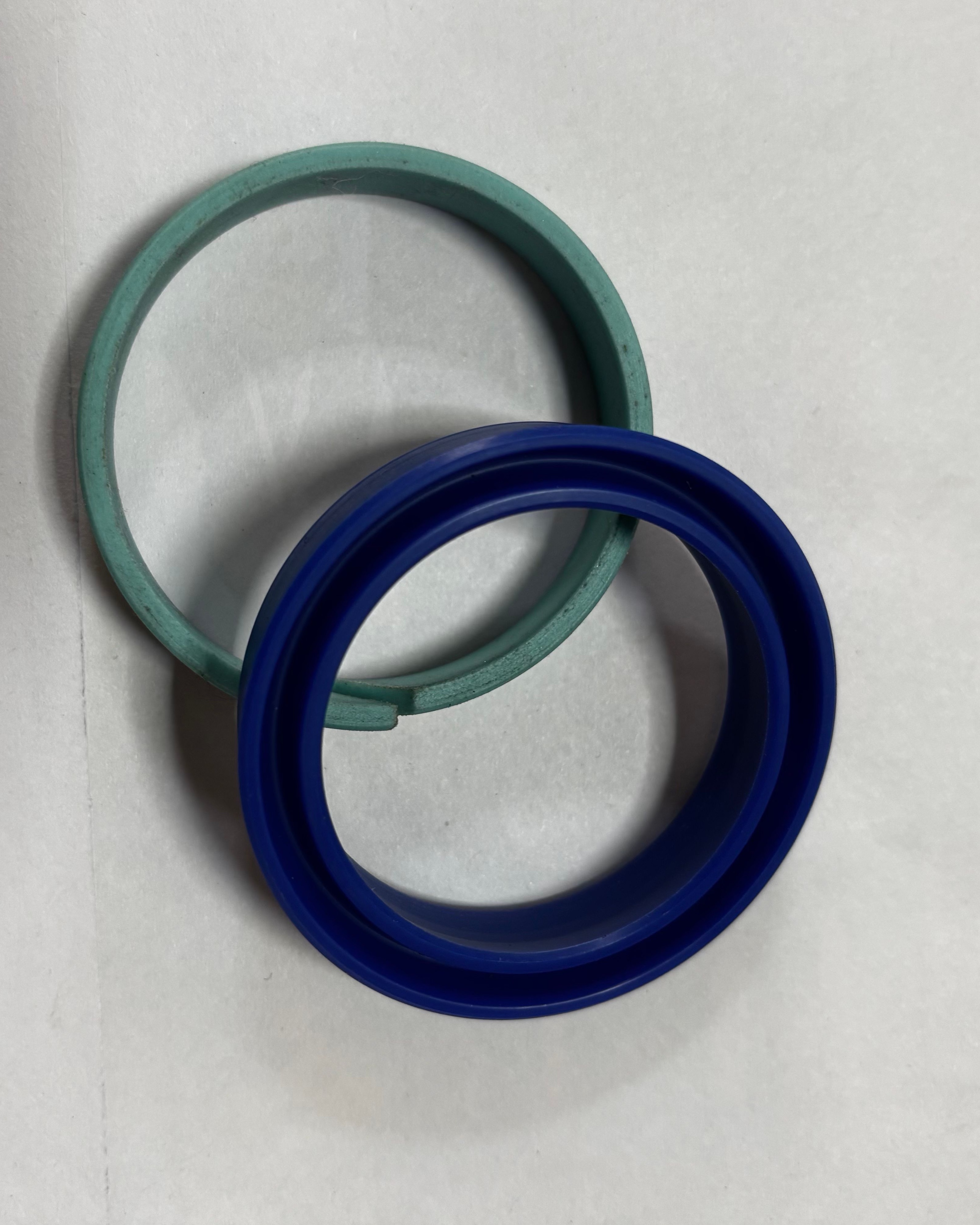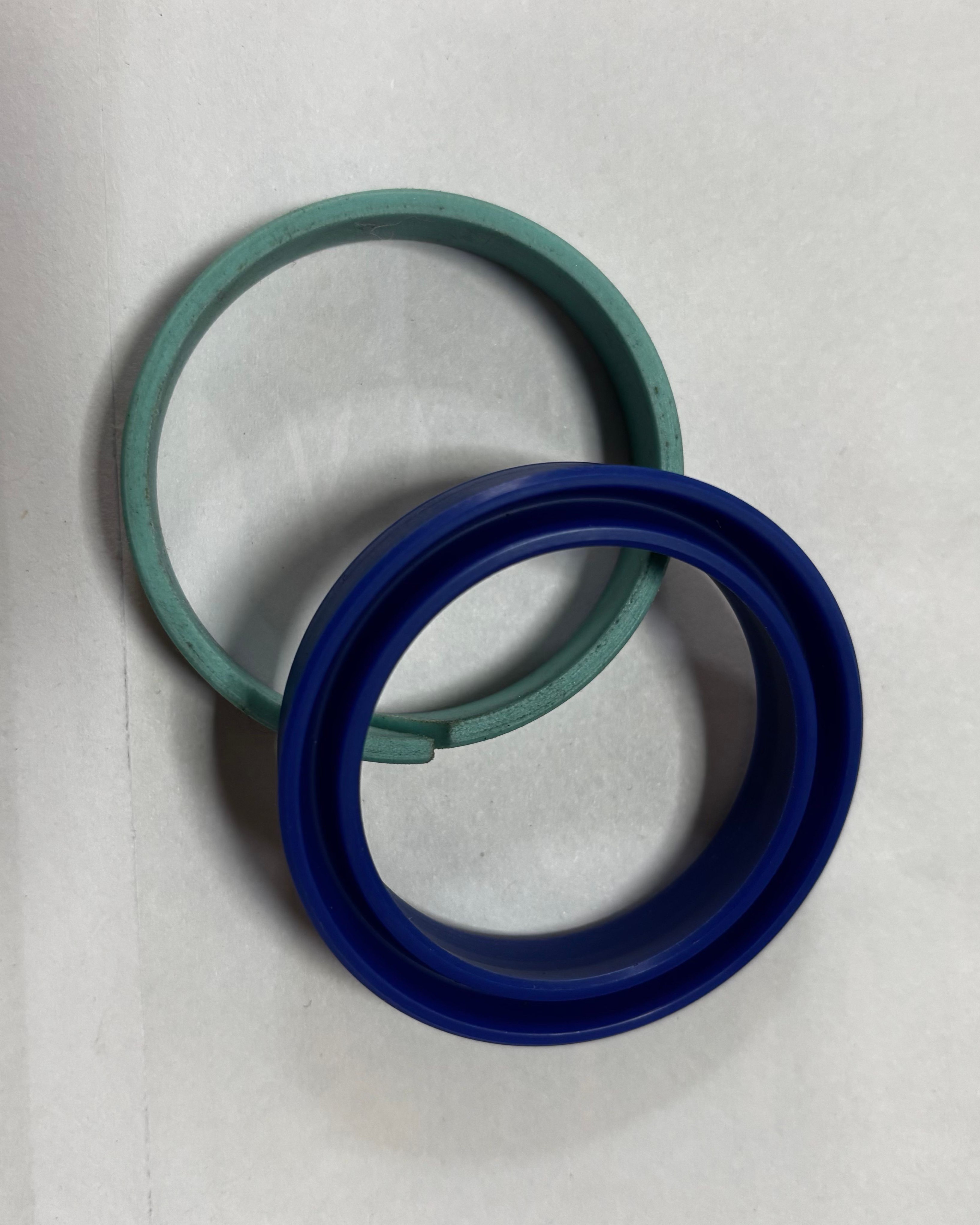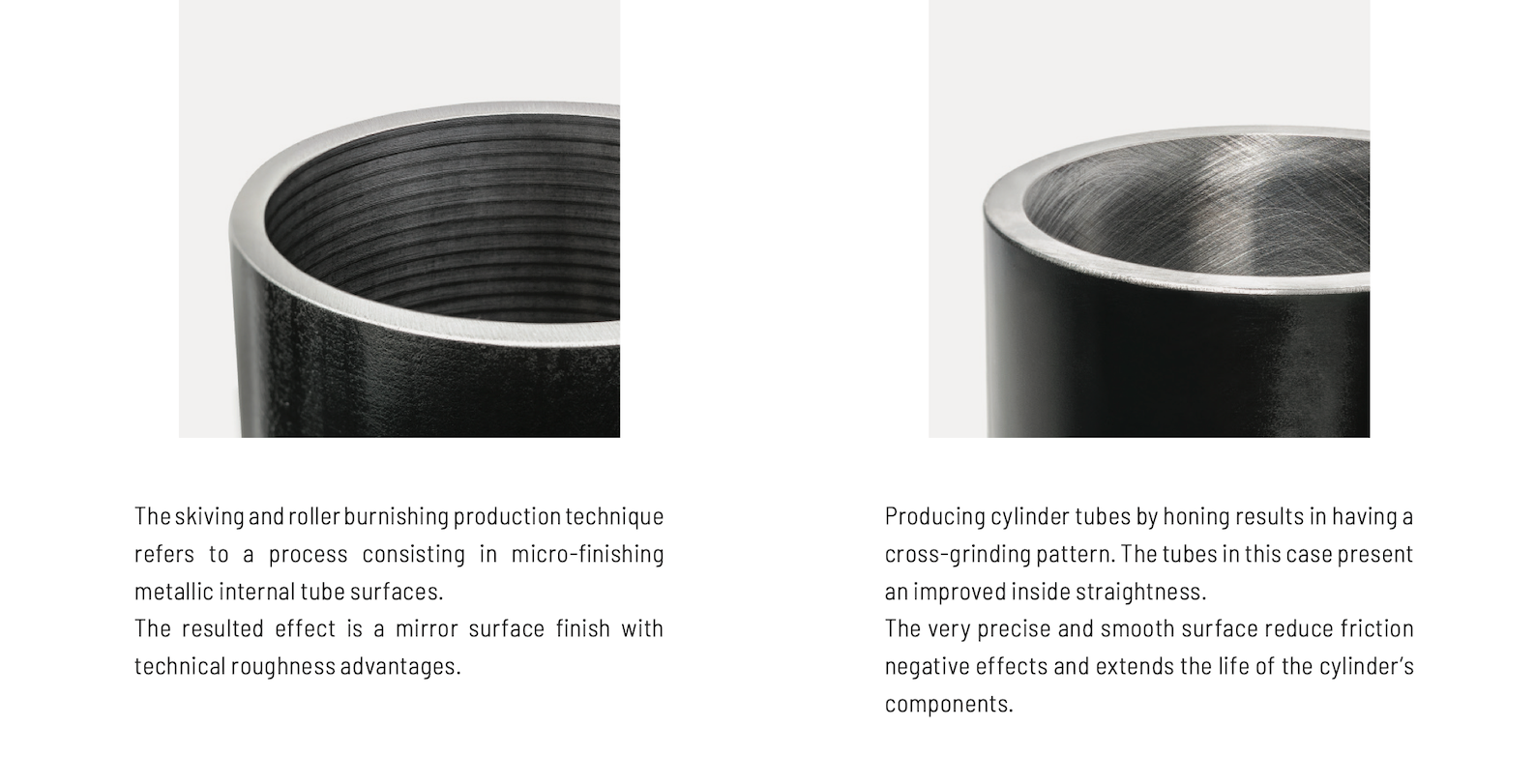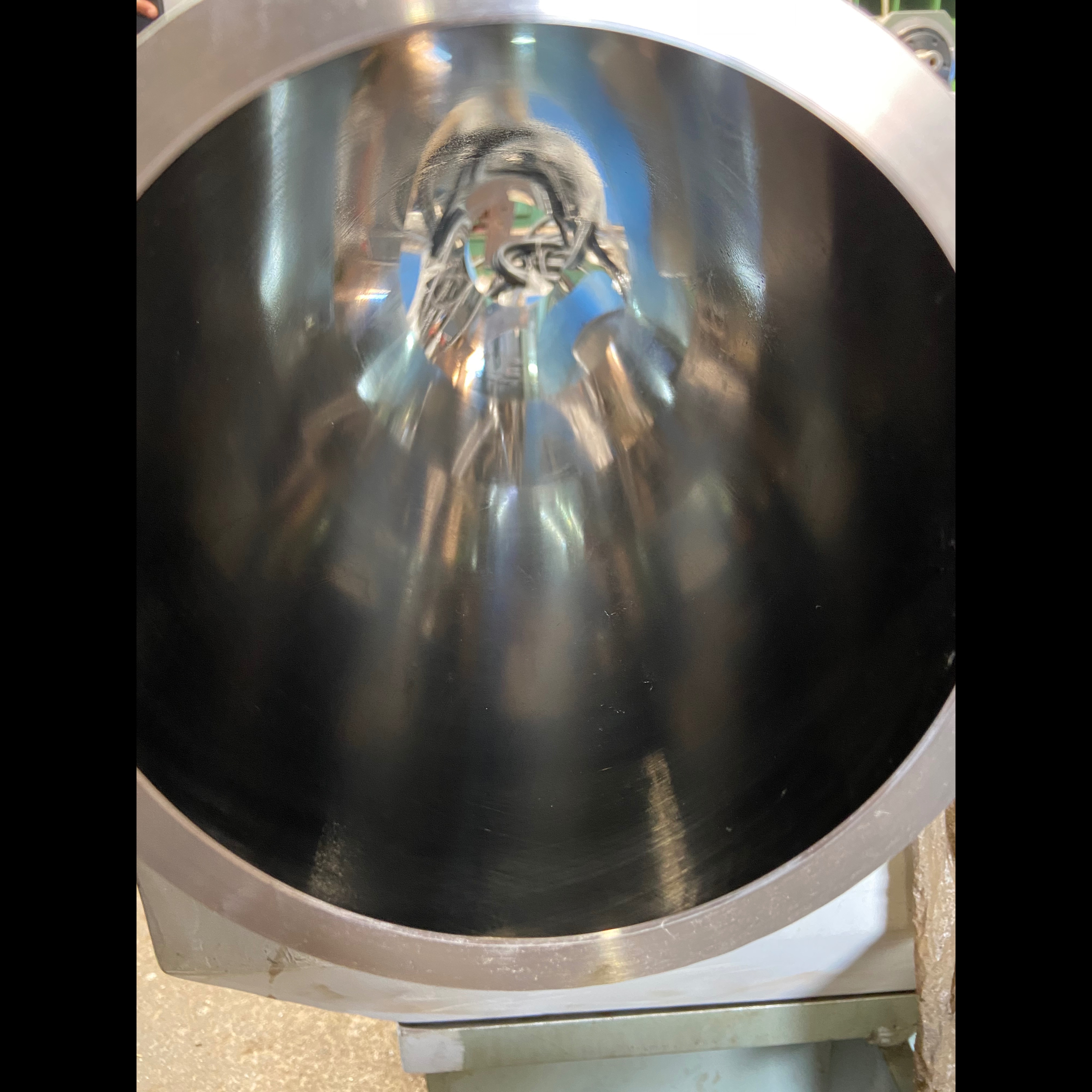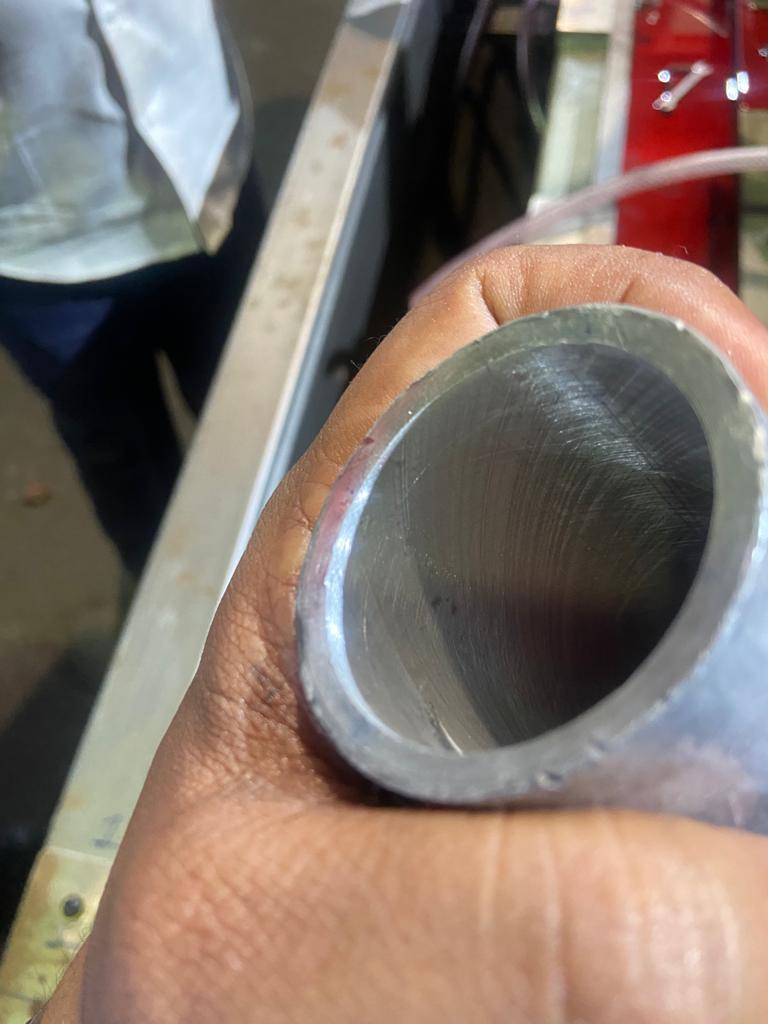
What are the advantages of Honing over skiving and burnishing in hydraulic cylinders?
Honing is considered important in extending the life of hydraulic cylinders as compared to skiving and burnishing for several reasons:
1. Surface Finish: Honing produces a smoother, more uniform surface finish on the inner diameter of the cylinder bore. This reduces friction between the cylinder and piston, leading to a reduction in wear and tear and a longer life for the cylinder and seals.
2. Tolerance Control: Honing provides precise control over bore geometry, including diameter, roundness, and cylindricity. This tight tolerance control ensures proper fit between the piston and cylinder, reducing friction and increasing the life of the cylinder and seals.
3. Geometry Correction: Honing can correct out-of-round or out-of-straight bores, which can cause problems with cylinder function and lead to premature failure.
4. Material Removal: Honing removes only a small amount of material, reducing the risk of altering the bore geometry and damaging the cylinder. Skiving and burnishing, on the other hand, remove more material and can cause excessive thinning of the cylinder wall, reducing its strength and leading to failure.
In conclusion, honing is a more precise and gentle machining process that is better suited to the needs of hydraulic cylinders. By providing a smooth surface finish, tight tolerance control, and geometry correction, honing helps extend the life of hydraulic cylinders and their seals.
Keywords
1.
tear
risk
wear
needs
seals
Honing
piston
skiving
problems
friction
strength
roundness
reduction
other hand
advantages
conclusion
proper fit
longer life
cylindricity
small amount
cylinder wall
cylinder bore
bore geometry
inner diameter
straight bores
precise control
several reasons
Material Removal
cylinder function
premature failure
excessive thinning
Geometry Correction
hydraulic cylinders
smooth surface finish
tight tolerance control
gentle machining process
smoother, more uniform surface finish
